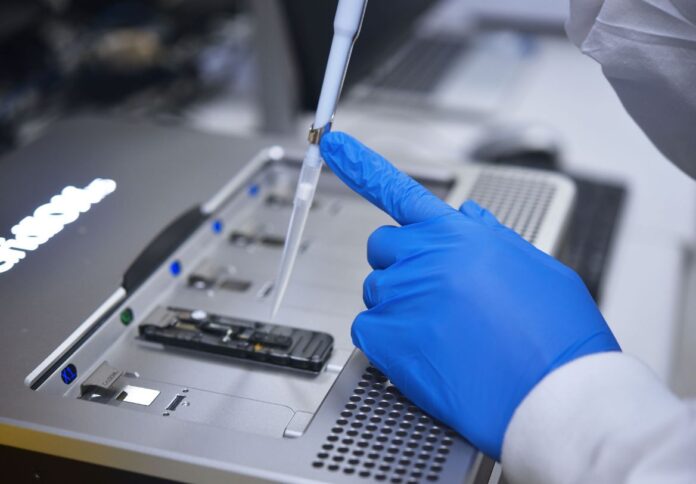
Researchers from the University of Queensland have collaborated with UK-based biotech company Oxford Nanopore Technologies to simplify and ensure the quality of manufactured mRNA vaccines.
The partnership, spearheaded by BASE researchers at UQ’s Australian Institute for Bioengineering and Nanotechnology, will leverage Oxford Nanopore’s latest sequencing technology to optimise the performance and reduce the time needed to measure mRNA vaccine quality attributes.
In a study published in Nature Communications, BASE researchers demonstrated how nanopore sequencing can directly analyse each individual mRNA vaccine molecule as it passes through a protein nanopore. This provides allows for a real-time measurement of the mRNA sequence identity and integrity.
The approach is expected to deliver a useful research tool to better understand how mRNA vaccines work by studying how they behave within cells
According to BASE mRNA technologies researcher Dr Helen Gunter, this approach could enable a quick detection of quality control issues in mRNA vaccines, which is critical during rapid manufacturing during a pandemic.
Currently, mRNA vaccines and therapies are analysed using a variety of time-consuming, complicated, and costly methods that are often outdated.
“Ultimately, we anticipate the use of nanopore RNA sequencing methods will become central to the development and manufacture of mRNA drugs,” Gunter said.
UQ’s BASE team is recognised as the biggest supplier of research-use mRNA in Australia, having built more than 200 mRNA vaccines and therapies for academic clinical and industrial use.
“We are excited to partner with the BASE team at The University of Queensland to further research supporting the manufacture and quality control of mRNA vaccines and therapies,” said Gordon Sanghera, CEO of Oxford Nanopore.
“Nanopore sequencing is the only sensing technology that can read native RNA in real-time, making it an essential part of the toolkit supporting the development of mRNA-based therapeutics.”




















